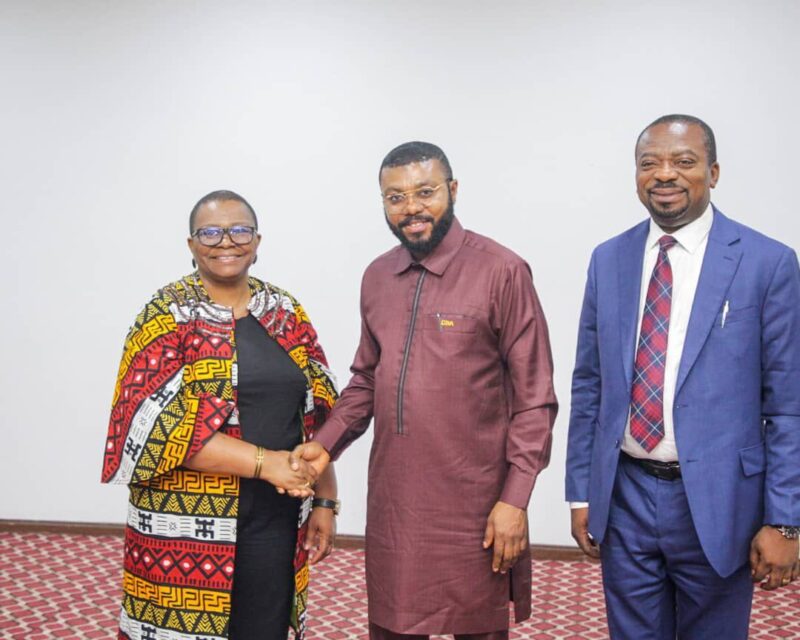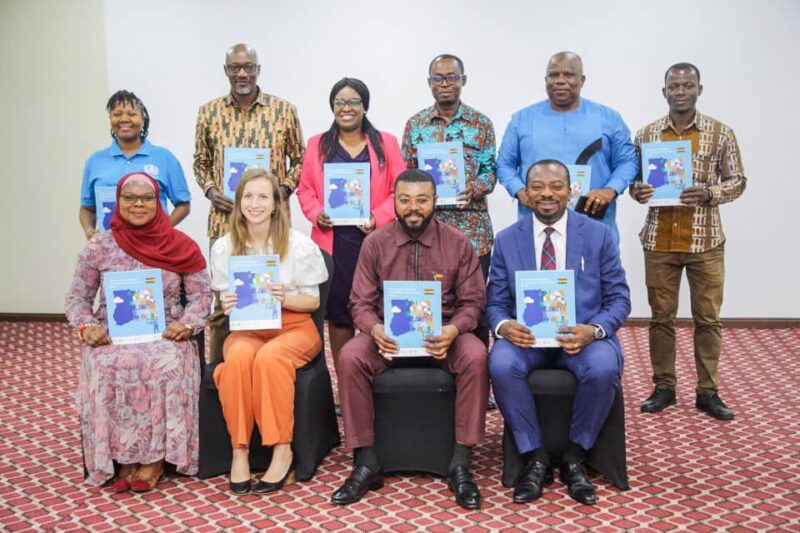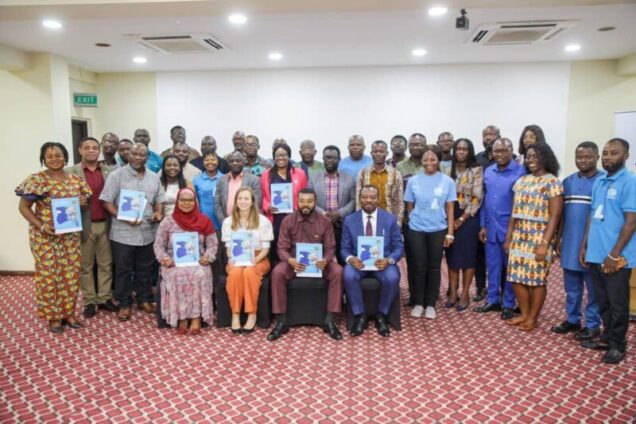Ghana has taken a monumental step towards building a more sustainable future by unveiling a comprehensive roadmap to decarbonise the building and construction sector.
The roadmap, launched on October 24 at the AH Hotel in Accra, aims to significantly reduce carbon emissions across the entire construction value chain.

Speaking at the launch, the Deputy Minister of Housing, Dr. Prince Hamid Armah, emphasized the importance of this initiative, describing it as a “transformative” and “pivotal step” in the nation’s journey toward environmental sustainability.
“This moment marks a pivotal step in our collective effort to create a more sustainable, resilient, and environmentally responsible built environment in Ghana,” Dr. Armah declared.
In collaboration with UN-Habitat and UNOPs, the Government of Ghana has crafted this roadmap as part of broader efforts initiated in November 2023 under the “Transforming the Built Environment through Sustainable Materials” program.
The roadmap seeks to address the construction sector’s significant contribution to global climate change.

“The building sector is a major contributor to climate change. According to the United Nations Environment Programme, this sector accounts for over 37% of global energy-related carbon emissions,” Dr Armah highlighted, emphasising the urgent need for action.
He further pointed out the staggering statistics linked to the industry’s environmental impact, including its consumption of 40% of global energy and 30% of raw material extraction.
Key strategies outlined in the roadmap include the promotion of energy-efficient systems, green building materials, water conservation, and the adoption of innovative technologies.
“This roadmap is not just a document; it is a blueprint for meaningful change,” Dr. Armah stated.

He also stressed that collaboration from all stakeholders is crucial to the success of the roadmap.
As Ghana continues to experience rapid urbanisation, with an urban population of 58%, the demand for sustainable construction practices has become more urgent.
Dr. Armah urged stakeholders—government entities, the private sector, financial institutions, and civil society—to work together to ensure that Ghana’s built environment reflects its values, culture, and commitment to sustainability.
In conclusion, the Deputy Minister launched the roadmap with a hopeful message: “Let it inspire action, encourage partnerships, and drive the innovation needed to build a future we can all be proud of.”
Latest Stories
-
CAF WCL 2024: Ghana’s Thelma Baffour wins title with TP Mazembe
18 mins -
Benjamin Boakye slams politicisation of energy sector issues and ECG’s inefficiencies
22 mins -
Erastus Asare Donkor and Dr Neta Parsram win big at 10th Mining Industry Awards
39 mins -
Government is “suppressing information” about power sector challenges – IES Director
46 mins -
Majority of our debts caused by forex shortfall – ECG Boss
1 hour -
Pan-African Savings and Loans supports Ghana Blind Union with boreholes
2 hours -
Bole-Bamboi MP Yussif Sulemana donates to artisans and Bole SHS
2 hours -
Top up your credit to avoid potential disruption – ECG to Nuri meter customers
2 hours -
Dutch & Co wins 2024 Entrepreneur of the Year Award
2 hours -
We’ll cut down imports and boost consumption of local rice and other products – Mahama
5 hours -
Prof Opoku-Agyemang donates to Tamale orphanage to mark her birthday
6 hours -
Don’t call re-painted old schools brand new infrastructure – Prof Opoku-Agyemang tells gov’t
6 hours -
Sunon Asogli plant will be back on stream in a few weeks – ECG
6 hours -
ECOWAS deploys observers for Dec. 7 election
7 hours -
73 officers commissioned into Ghana Armed Forces
7 hours

